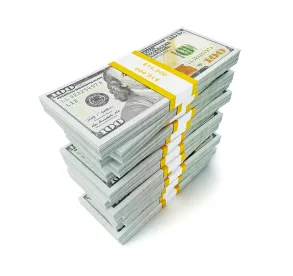Price gouging statutes typically operate by setting a baseline over which any price increase is presumptively illegal, subject to various exemptions. But different states use different formulas for their baselines. Businesses who provide covered goods or services therefore need to determine the relevant baselines in order to calculate whether, and how much of, a price increase is permissible.
Consider a seller in New Jersey, where calculating the baseline reference price is relatively simple. In New Jersey, the relevant price for calculating a baseline is the price of the good or service “immediately prior to the state of emergency.” N.J. Rev. Stat. § 56:8-108. Given New Jersey’s March 9, 2020 emergency declaration, the baseline reference price for goods or services will be the price at which they were offered on March 8, 2020. The statute also provides that increases of more than 10% above that baseline price are presumed excessive. Assuming the seller offered a covered good or service for $100 on March 8, absent an exception to the law, it cannot raise its prices above $110 in New Jersey during the ongoing state of emergency.
Other states have more complicated processes for determining the reference price, and will consider the average prices of the same or similar goods or services in the 30 days (i.e. Alabama), 60 days (i.e. Wisconsin), or 90 days (i.e. Washington D.C.) before the emergency. Florida, for example, uses the average price in the 30 days before the declaration of a state of emergency. Fla. Stat. § 501.160(1)(b). Since Florida also declared its state of emergency on March 9, 2020, the baseline price would be the average price at which a good or service was offered between February 8 and March 8, 2020.
If covered goods or services were offered at a sale price in February or early March, those lower prices could bring down a seller’s average for that baseline calculation period. Many statutes, however, provide that consideration will be given where the promoted prices do not reflect “normal” pricing. Several states explicitly exclude factoring “temporar[y] discount[s]” (Mississippi), “discounted prices” (Rhode Island), or “limited discounts or rebates” (Rhode Island) into the average price calculation, and instead identify price gouging by comparing sales prices to the “normal average retail price” (D.C.) or the “average price at which the same or similar commodity was readily obtainable” (Florida) during the relevant period. For example, Virginia’s statute provides that the state will refer to the price charged for the same or similar goods or services “during the 10 days immediately prior to the time of disaster,” but allows an exception for good or services that a supplier offered at a reduced price immediately before an emergency was declared. In those cases, “the price at which the supplier usually offers the good or service shall be used as the benchmark for these purposes.” V.A. Code § 59.1-527.
Baseline prices can also be exceeded if other exceptions are met, such as for increases directly attributable to increases in the cost of labor or materials, or for increases specifically authorized by a state agency. Georgia, a state that appears to bar any price increases above the benchmark reference, nonetheless includes an exception for increased costs. According to the state statute, prices can be increased “only in an amount which accurately reflects an increase in cost of the goods or services to the person selling the goods or services or an increase in the cost of transporting the goods or services into the area.” Ga. Code. § 10-1-393.4.
These exceptions are not uniform across the state laws, however, and do not obviate the need for baseline price calculations. Calculating a baseline reference price necessarily precedes any evaluation permitted price increases and risks. With the repeated extensions of the original emergency declarations, the baselines from the original declarations of emergency (primarily in March) will likely control for the foreseeable future, and knowing them will simplify the process of complying with the various state price gouging restrictions.







 />i
/>i
